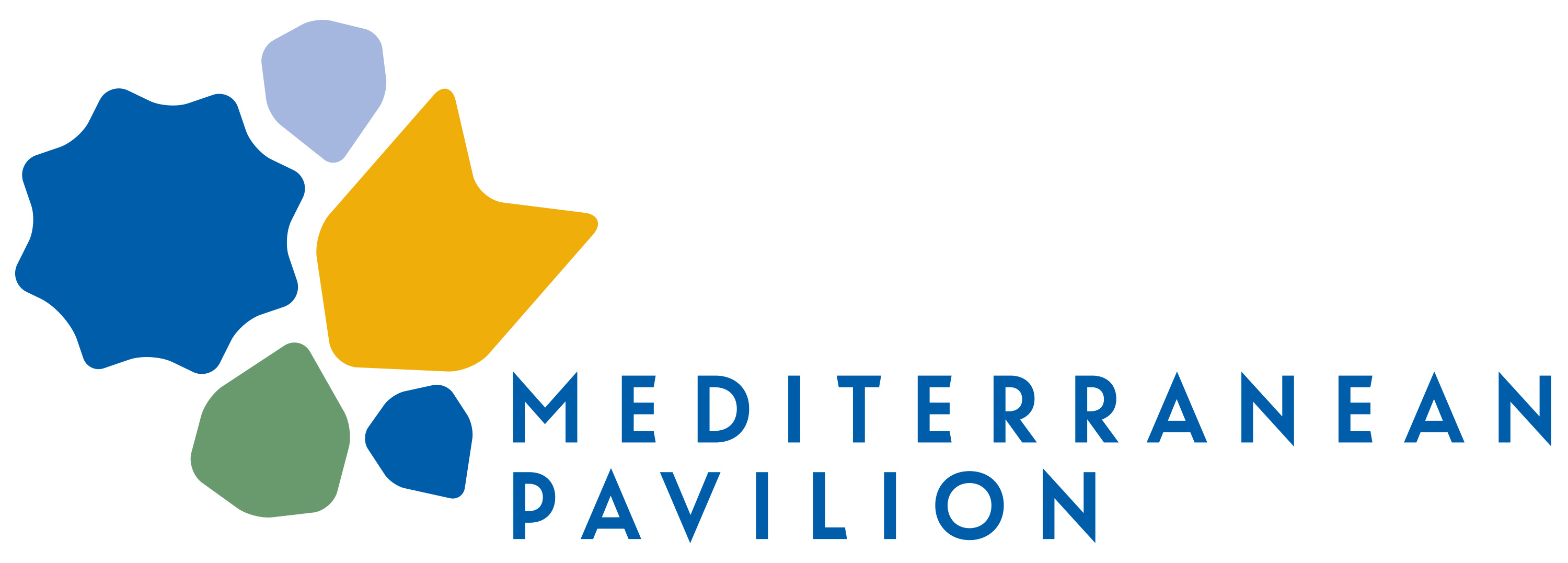PRIMA to co-organize the Mediterranean Pavilion at COP27
For the first time in history, COP27 (6-18 Nov, 2022) will host a Mediterranean Pavilion, seeking to highlight both the urgent challenges the region faces, and the innovative solutions already being developed.
The Mediterranean Pavilion is a coalition of like-minded partners: the Union for the Mediterranean, the PRIMA Foundation, and UNEP–MAP, along with a group of relevant organisations and a scientific committee, led by the Mediterranean Experts on Climate and environmental Change (MedECC) network, which gathers 600 scientists, and who produced the first scientific assessment on climate and environmental change in the region.
Located in the COP27 Blue zone, the Mediterranean Pavilion will host relevant events and working meetings and provide an exceptional opportunity to highlight these severe challenges as well as to illustrate, share, scale up and discuss the advanced initiatives applied and planned in the region.
The Mediterranean Pavilion is conceived as a space for all regional actors
– public and private, scientific and academic, technical, policymaking, civil society, finance, and business – actively engaged in facing the climate crisis in and around the Mediterranean Sea. The initiative is led by the Union for the Mediterranean (UfM) together with the United Nations Environment Programme - Mediterranean Action Plan (UNEP-MAP) and the PRIMA Foundation, along with a coalition of the most relevant organizations dealing with climate action in the region (see list below). In an innovative approach, the Mediterranean Pavilion will have the independent network of Mediterranean Experts on Environmental and Climate Change (MedECC) as a scientific council advising all its activities. MedECC gathers over 600 scientists from 35 countries and published in 2019 the first-ever scientific assessment report on the impact of environmental and climate change in the Mediterranean region.
Following a summer dominated by climate and environmental emergencies across the region, and within the context of a global climate crisis, the Mediterranean area faces challenges of its own that can lead to regional instability: extremely severe and accelerated impact – it is the planet’s second fastest warming region (warming 20% faster than the global average)– overlapping with a dangerous socio-economic asymmetry and lack of integration. But the Mediterranean is also a hub for emerging solutions – public policies and private initiatives - that can serve as a blueprint for similar efforts to be scaled up globally.
An effective and rapid transition requires a joint effort by all the relevant actors. The Pavilion is meant to serve the region and will operate as a hub for activities and partnerships undertaken by regional public institutions, civil society organisations and private sector entities catalysing a sustainable transition through collective and scalable innovation. In this regard, the organisers are inviting organizations to host activities and participate in the Pavilion’s discussions and negotiations (information on the call published here www.mediterraneanpavilion.com).
MEDIA ACCREDITATION
Journalists interested in receiving further upcoming information on the Pavilion’s activities, announcements, press events or booking interviews with a Mediterranean Pavilion’s representative, please contact: This email address is being protected from spambots. You need JavaScript enabled to view it.
The information on the daily agenda and activities foreseen during the COP27 will be published soon on www.mediterraneanpavilion.com.
Know the Mediterranean Pavilion’s organizers and partners
Organisers
- Union for the Mediterranean (UfM)
- United Nations Environment Programme - Mediterranean Action Plan (UNEP-MAP)and Plan Bleuand MedWaves
- Partnership for Research and Innovation in the Mediterranean Foundation (PRIMA)
Partners
- ENI-CBC Med Programme
- Euro-Mediterranean Economists Association (EMEA)
- European Centre for Medium-Range Weather Forecastsand the Copernicus Earth observation programme
- German Agency for International Cooperation (GIZ)
- International Centre for Advanced Mediterranean Agronomic Studies (CIHEAM)
- Interreg MED Programmeand Unimed
- Med Energy Conference & Exhibition (OMC)
- Prince Albert II of Monaco Foundation(PA2F)
Scientific Council
Background information
In June and October 2021, the 42 countries of the Union for the Mediterranean signed two UfM Ministerial Declarations to tackle Energy challenges and Environment and Climate Change in the region. Ministers reaffirmed their commitment to lead by example and reflect the highest possible ambition by accelerating the transition towards fair, resilient, climate-neutral, and resource-efficient economies in an attempt to limit the average global temperature rise to 1.5°C, halt and reverse biodiversity’s loss and reduce air pollution. The Mediterranean Pavilion’s initiative reflects the commitment of the Euro-Mediterranean countries towards effectively tackling climate change.
The dire warnings of the Intergovernmental Panel on Climate Change (IPCC) and the network of Mediterranean Experts on Climate and Environmental Change (MedECC) also drew attention to the Mediterranean as one of the world’s hotspots of climate change. Read the full study.
Media accreditation for COP 27 in Sharm el-Sheikh is open
The sessions will be held from 6 to 18 November 2022 at the Sharm El Sheikh International Convention Centre (SHICC), El Salam Road, in Sharm El Sheikh, Egypt. Online Registration System: https://onlinereg.unfccc.int/ . Further information on media accreditation and a list of our frequently asked questions (FAQs) is available online.
About PRIMA
PRIMA –Partnership for Research and Innovation in the Mediterranean Area– is an ambitious science diplomacy program that aims to build R&I capacities and develop innovative solutions for agro-food systems and integrated water provision and management in the Mediterranean area competitive calls for funding. The partnership consists of 19 countries, including 11 EU Members States and eight non-EU Mediterranean Countries, on an equal footing basis (co-ownership, co-management and co-funding) supported by the European Commission.


